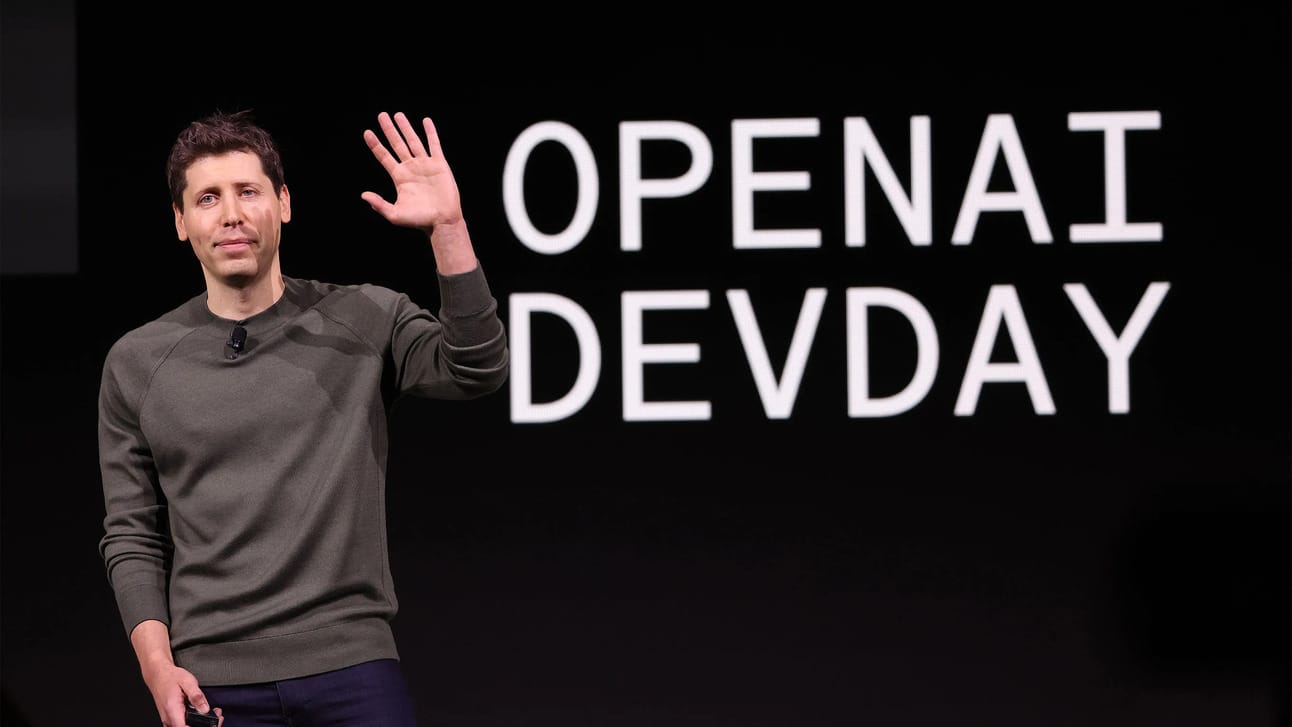- Golden Horizon AI
- Posts
- 🧑⚖️ California’s AI bill was vetoed
🧑⚖️ California’s AI bill was vetoed
ALSO: OpenAI’s Dev Day announcements for API access
🧑⚖️ California’s AI bill was vetoed
ALSO: OpenAI’s Dev Day announcements for API access

Estimated Read Time: 4 minutes
California’s AI bill has been brewing for awhile now. It promises to regulate AI companies and hold them accountable for any damages their AI’s cause. But despite the public’s endorsement, the bill was just vetoed. Now it’s back to the drawing board.

🧑⚖️ California’s AI Safety Bill was vetoed.
🤖 OpenAI’s announcements at Dev Day.
🦾 Copilot get’s an upgrade.
🧠 Google’s upcoming reasoning AI.

Read time: 1 minute
🧑⚖️ California’s AI Safety Bill was vetoed

What happened: California Governor Gavin Newsom vetoed the landmark bill, SB 1047, which would have created groundbreaking regulations for AI companies in the State.
The details:
The bill’s major features: AI companies would have to test their models before release and be responsible for any public harm they caused.
One possible reason for the veto is simply unknown execution. The ideas were great, but executing them is much more difficult. It’s been called, “Well intentioned, but flawed.”
The other reason for the veto: most major tech companies (and some politicians like Nancy Pelosi) opposed the bill, claiming it would stifle innovation and cause competing countries to advanced beyond the US in AI.
Elon Musk and the “Godfather of AI” Geoffrey Hinton both supported the bill, believing it’s necessary to keep AI safe for humanity.
Right now the USA lags behind the EU in AI laws and regulations.
Why it matters: The US federal government refuses to clamp down on dangerous AI practices, especially compared to the EU, leaving the matter to local jurisdictions. California’s law would have encouraged other states to follow suit. But this may have been too much, too fast. We’ll have to wait and see if California remakes the law in a more appealing form.


🔥 OpenAI adds Canvas features. ChatGPT’s new interface, Canvas, allows for more collaborative projects with new editing tools and shortcuts. Canvas opens in a separate window next to the chatbox, so you can directly edit aspects to get your desired output. Some of the new features include: inline feedback, targeted edits, and task-specific shortcuts. Early tests and reports claim Canvas makes GPT-4o more accurate compared to using it without the interface. You can access Canvas in beta if you’re a Premium member.

Read time: 1 minute
🤖 OpenAI’s announcements at Dev Day

What happened: OpenAI made several announcements at Dev Day, mostly talking about making their API more accessible to developers at a cheaper cost.
The details:
Prompt Caching now cuts costs by almost 50% across models and boosts response times over 70% by reusing recent input tokens in API calls. A massive increase in efficiency.
Realtime API gives devs the ability to create speech-to-speech applications using the same model behind Advanced Voice. This is pretty big.
The new vision fine-tuning feature for GPT-4o allows developers to fine-tune models using images in addition to text. It’s available with free training tokens through October 31, 2024.
Why it matters: These tools will become the cornerstone of many apps and programs made by developers. These tools have a lower barrier to entry than ever before, allowing more people to develop crazy ideas using these tools. It’s never been a better time to be a developer.

Read time: 1 minute
🦾 Copilot get’s an upgrade

What happened: Microsoft’s Copilot just got a host of new features. The gist? It basically brings Copilot up to par with current ChatGPT features, along with a few additions.
The details:
Copilot now has an intuitive speech communication mode, similar to ChatGPT’s Voice mode.
Copilot Vision interacts with Microsoft’s Edge browser to see and understand what you’re viewing and give insights and context about the content.
The new “Think Deeper” mode is basically just enhanced logical thinking like GPT-o1.
Yes, the controversial “Recall” feature will return, but with an easier opt-out for people concerned about privacy.
Why this matters: Copilot might be a major privacy invasion, but it’s one step closer to being the ultimate AI personal assistant which is inevitable one day.

Read time: 1 minute
🧠 Google developing their own reasoning AI, competes with OpenAI GPT-o1

What happened: Google is reportedly working on their own reasoning model, similar to OpenAI’s GPT-o1. The competition is firing up as competitors rush to catch up to OpenAI’s current tech lead.
The details:
According to Bloomberg, the AI teams at Google are busy working on multi-step processing to create a more logical AI model similar to GPT-o1.
The AI uses chain-of-thought reasoning to contemplate its answer before responding.
Unlike OpenAI, Google is taking a slower, safer approach to AI releases. (At least publicly.)
Recent AI advancements from Google include Google’s AlphaProof and AlphaGeometry 2, which excelled in mathematical reasoning and problem-solving at the International Mathematical Olympiad.
Takeaway: Logical reasoning is the biggest foil to AI aside from raw processing power. Google’s attempt to catch up to OpenAI’s GPT-o1, which is very impressive, was obvious. So will OpenAI’s competition catch up, or will they maintain their current lead?

🪖 Another year, another Call of Duty




Had to include it.
Source: Midjourney

Give us your feedback!
Got feedback? Rate today’s newsletter by clicking below!
Got more personal feedback? Fill in the box when you rate us and give us your criticism and feedback.
Thank you for reading!
❤️Share the (ARTIFICIAL) Love!
Got a friend who wants to appear as smart as you? An AI fanatic or someone shaking in their boots of getting replaced? Share us by clicking the link below and you’ll get our love ;)